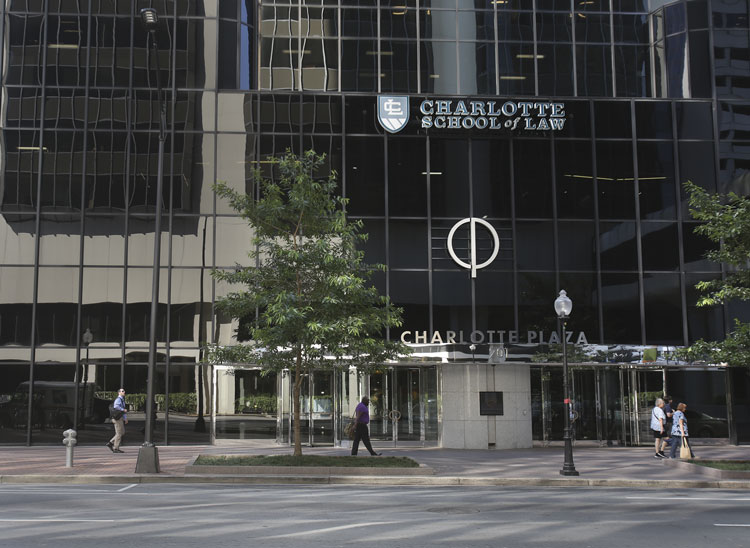Panel denies motion to consolidate suits against ABA by 3 InfiLaw schools

The now-defunct Charlotte School of Law is one of three for-profit InfiLaw schools that have sued the ABA. ABA Journal file photo by Albert Dickson.
An American Bar Association motion to consolidate three federal actions filed by for-profit law schools owned by InfiLaw, all alleging due process violations regarding law school accreditation, was denied by the U.S. Judicial Panel on Multidistrict Litigation.
The ABA sought to centralize the lawsuits in the Western District of North Carolina or the Middle District of Florida. The panel found that although the three cases involve “nearly identical legal challenges” of law school accreditation standards and share factual questions regarding the plaintiffs’ claims regarding the Department of Education and ABA officials, centralization for the cases is not appropriate, because there are only three, and given that there are only three InfiLaw schools it’s unlikely that any tagalong lawsuits will be filed.
“Our lawyers are reviewing the order and, consistent with our practice when litigation is pending, we have no further comment,” Barry Currier, the the ABA’s managing director of accreditation and legal education, told the ABA Journal in an email.
H. Christopher Bartolomucci, a Kirkland & Ellis partner who represents InfiLaw in the three lawsuits, said in a statement that his clients are pleased with the order, adding that the six-judge panel “saw no merit in the ABA’s request to consolidate the actions.”
Plaintiffs in the three actions are Florida Coastal School of Law, Arizona Summit School of Law and the now-shuttered Charlotte School of Law.
“Resolution of the cases likely will hinge on legal questions (such as whether the ABA can be considered a state actor and whether its accreditation standards are unenforceably vague), the resolution of which may not require discovery. The question of whether discovery should be allowed into purported anti-InfiLaw bias by decisionmakers and other officials, though common to all cases, is not itself a factual dispute. Common legal questions are insufficient,” the Aug. 1 order states.
It also notes that if needed, there are mechanisms to minimize the chances of duplicative discovery without multidistrict litigation.
“Notices of deposition can be filed in all related actions; the parties can stipulate that any discovery relevant to more than one action can be used in all those actions; and the involved courts may direct the parties to coordinate other pretrial activities,” the order states.



